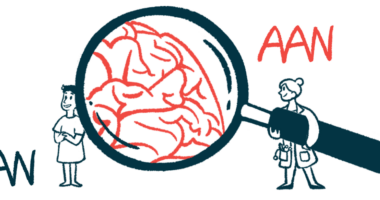Parkinson’s Treatment in EU, Ongentys, Seen to Reduce Off-Time in Levodopa Users

A Phase 3 clinical trial (NCT01227655) in Parkinson’s disease patients on levodopa treatment showed that Bial’s Ongentys (opicapone) reduced the fluctuations in drug effect that are a hallmark of levodopa treatment, according to a recent study that evaluated trial data.
Patients who received Ongentys had less off-time, meaning the period when the effectiveness of the drug wears off and loss of movement returns. But the trial did not address earlier concerns raised about the moderate effectiveness of the treatment — a point noted by the study’s authors in references to an earlier comparison drug — and Ongentys did not improve overall scores of movement or daily living activities.
The study, “Opicapone as Adjunct to Levodopa Therapy in Patients With Parkinson Disease and Motor Fluctuations — A Randomized Clinical Trial,” was published in the journal JAMA Neurology.
The trial enrolled 427 patients randomized to receive either 25 mg or 50 mg per day of Ongentys, or placebo. Patients in the higher dose group lowered their off-time by 118.8 minutes — a significant improvement compared to placebo-treated patients, who only improved 64.5 minutes. The average improvement was adjusted for other factors that may have influenced the analysis.
The treatment also increased the time with adequate symptom control, generally without increasing side effects.
Although patients receiving 25 mg per day also improved more than those on placebo, the difference was not significant.
Of the initial 427 patients who enrolled in the study, 376 completed the trial’s entire 14 to 15 weeks. Bial enrolled 286 of them into a one-year extension study, in which patients previously given placebo now received Ongentys.
Ongentys is a third generation catechol-O-methyltransferase (COMT) inhibitor, blocking one of the enzymes breaking down dopamine. In this way, it can extend the actions of drugs such as levodopa that aim to increase the concentration of dopamine in the brain.
In addition to Ongentys, two earlier COMT inhibitors are available: Tasmar (tolcapone), which has been linked to liver toxicity, and Comtan (entacapone). While Comtan has not been linked to toxicity, a large meta-analysis mentioned in the study found that it was only moderately effective.
Ongentys was approved in Europe in July 2016, and in the U.K. in October (it has not been approved in the U.S.). European approval rested on the currently described Phase 3 trial, along with a previously published Phase 3 study (NCT01568073) in which Ongentys was compared to both placebo and Comtan.
The trial showed that Ongentys reduced off-time more than Comtan — 116.8 versus 96.3 minutes — but in a linked comment, University of Lille researchers wrote that the improvement compared to placebo (about one hour) was small compared to the total off-time of about 6.5 hours in the group.
They also pointed out that this was an unusually high off-time for patients in this disease stage, suggesting that they were on rather low doses of levodopa. The treatment did not improve symptoms or the quality of life, they wrote.
In the more recently published study, Bial did not report the average off-time at study start, but showed that the treatment did not impact overall movement or activities of daily living.






